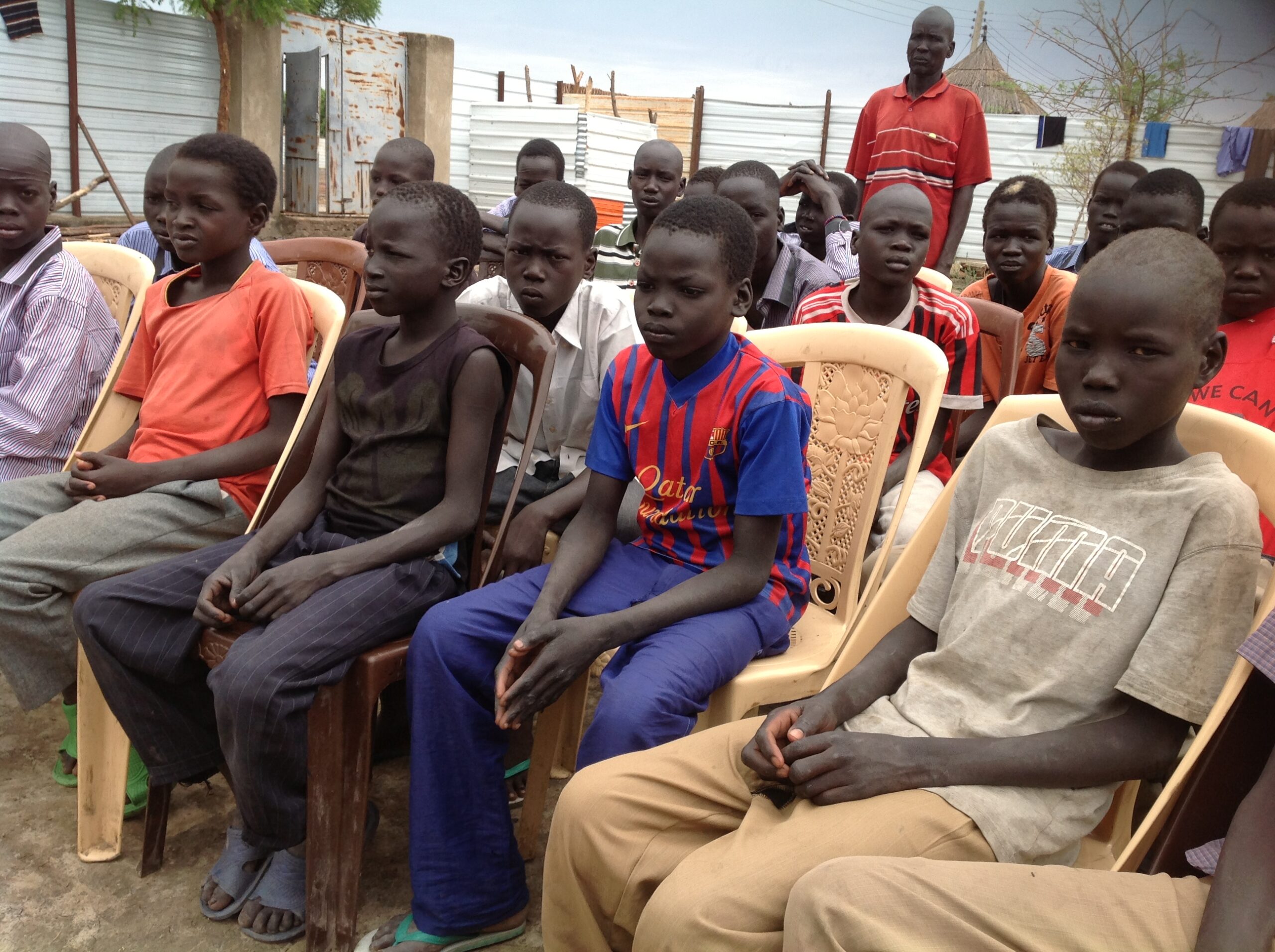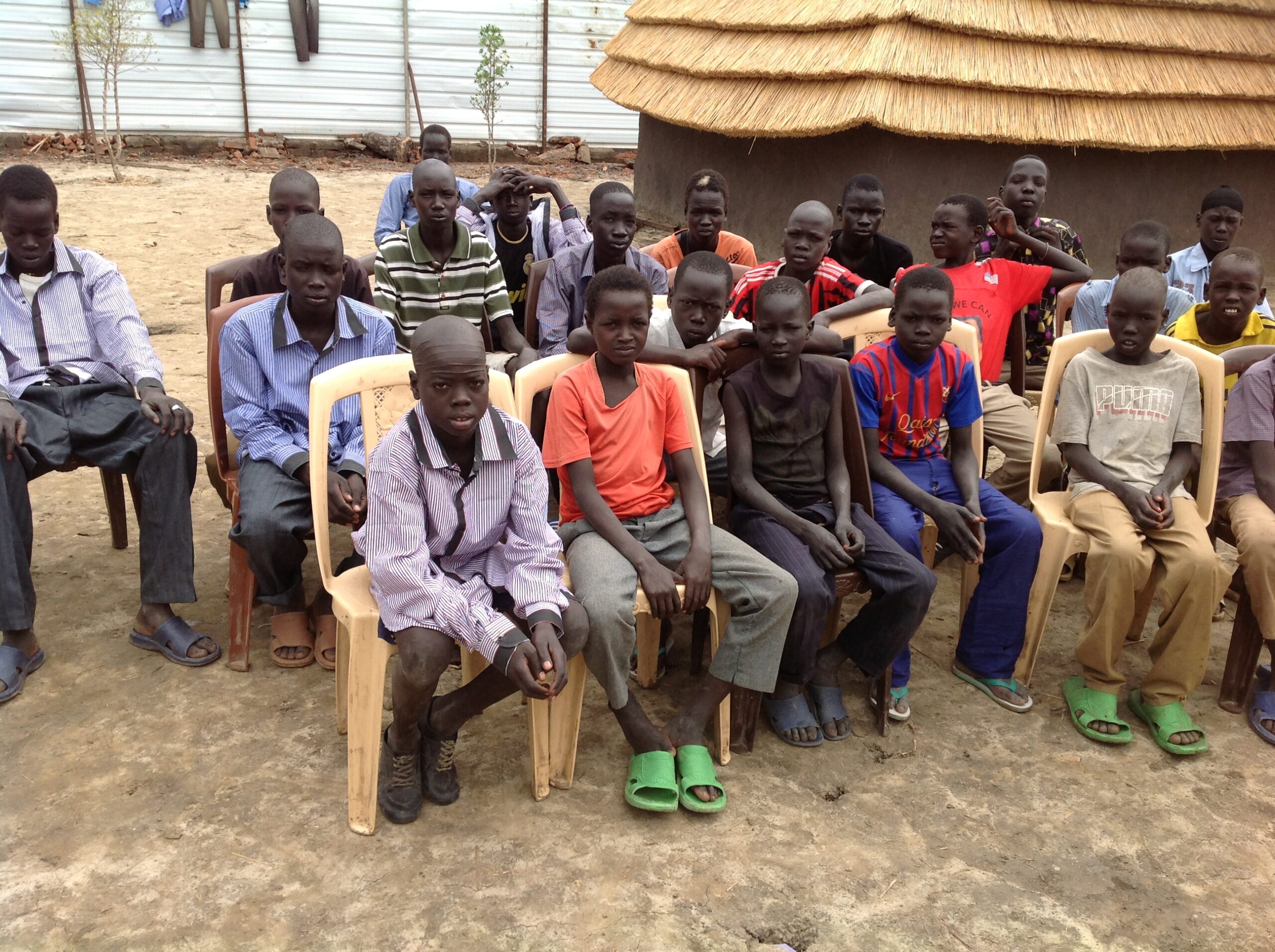27 children removed from military bases in Unity state
By Bonifacio Taban Kuich
May 6, 2013 (BENTIU) – Unity state authorities have removed 27 children from South Sudan’s national army this week as part of the implementation of a series of agreements inked by military and the United Nations on 20 November 2009.

The UN Mission in South Sudan (UNMISS) is mandated to facilitate the process in terms of funding South Sudan’s Disarmament Demobilization Reintegration Commission (DDR), which identifies children that may be associated with the armed forces and finds ways to remove and place them back into civilian life.
George Gatloi Koang, who heads the DDR commission in Unity state, says they are working to discourage underage children from joining the South Sudan’s army – the SPLA.
Many children, some younger than 8 years old, are forced by their circumstances to move to nearby SPLA barracks to provide informal support to soldiers, such as searching for food and carrying out other menial tasks.
Gatloi says that lack of support networks and basic services force many children to live in military barracks. Some children in South Sudan leave their families and become street children as their families struggle to feed them.
In some cases polygamous marriages have contributed to the problem with parents not taking responsibility for their children by providing basic needs such as shelters, food, medical care and clothing.
During the civil war child soldiers were used by both the SPLA – then a rebel group based in southern Sudan – and by the forces aligned to the Sudanese military.
However, since a peace deal in 2005 and South Sudan’s independence in 2011 the issue is longer one of recruitment into the armed forces but children seeking informal employment and support from the army, Gatloi said.

“The SPLA are not longer recruiting children they are just handling those children are their children because impossible when a somebody coming to you and saying he or she looking food and chase him out is a shameful to that person. That is why they are handling those children; it is not because they are recruiting and it is not because these children they are receiving money. They are just there because of situation, this is the context we find out from children it is the hunger”, said Gatloi.
Since 2012, the commission has working alongside with United Nations Children’s Fund (UNICEF) and Veterinary San Frontier (VSF) in providing children who are demobilized with five female goats in order to help their reintegration and reunification with their families.
However, this year, Gatloi said the commission will look after the children for a period of a month before returning them to their families in order to find out more about the cycle of children leaving their homes and returning the army barrack.
“We need to see why children are going back” he said. During the month the commission will provide counseling to the children and try get to the root of the why children keep going to live with soldiers.
Gordon Koang Ruai, 13, who lived among the army for two years, said the he decided to work informally for soldiers was forced on him as his parents were not properly looking after him.
“The reason that forced me to live with the army was because my mother left for Khartoum and my father became old enough and was unable to feed me, I took opportunity in staying with a SPLA officer who employed me to wash clothes for him and so there I could find it easy to eat with the boss when his food come we sit and eat together”, said Ruai.
Chok Gatyien Beel, an 8-year-old boy who lived with the army at Pakur for one year, said he found easy work washing clothes at the SPLA barracks is washing clothes. He called on NGO’s to help them enroll in schools so that they could contribute to the future of South Sudan.
The head of the SPLA’s Fourth Division, which is based in Unity state, commander James Koang Chuol, has ordered battalions to report all children living among them to the military’s state headquarters in order that they can be released and reunited with their families.
(ST)
